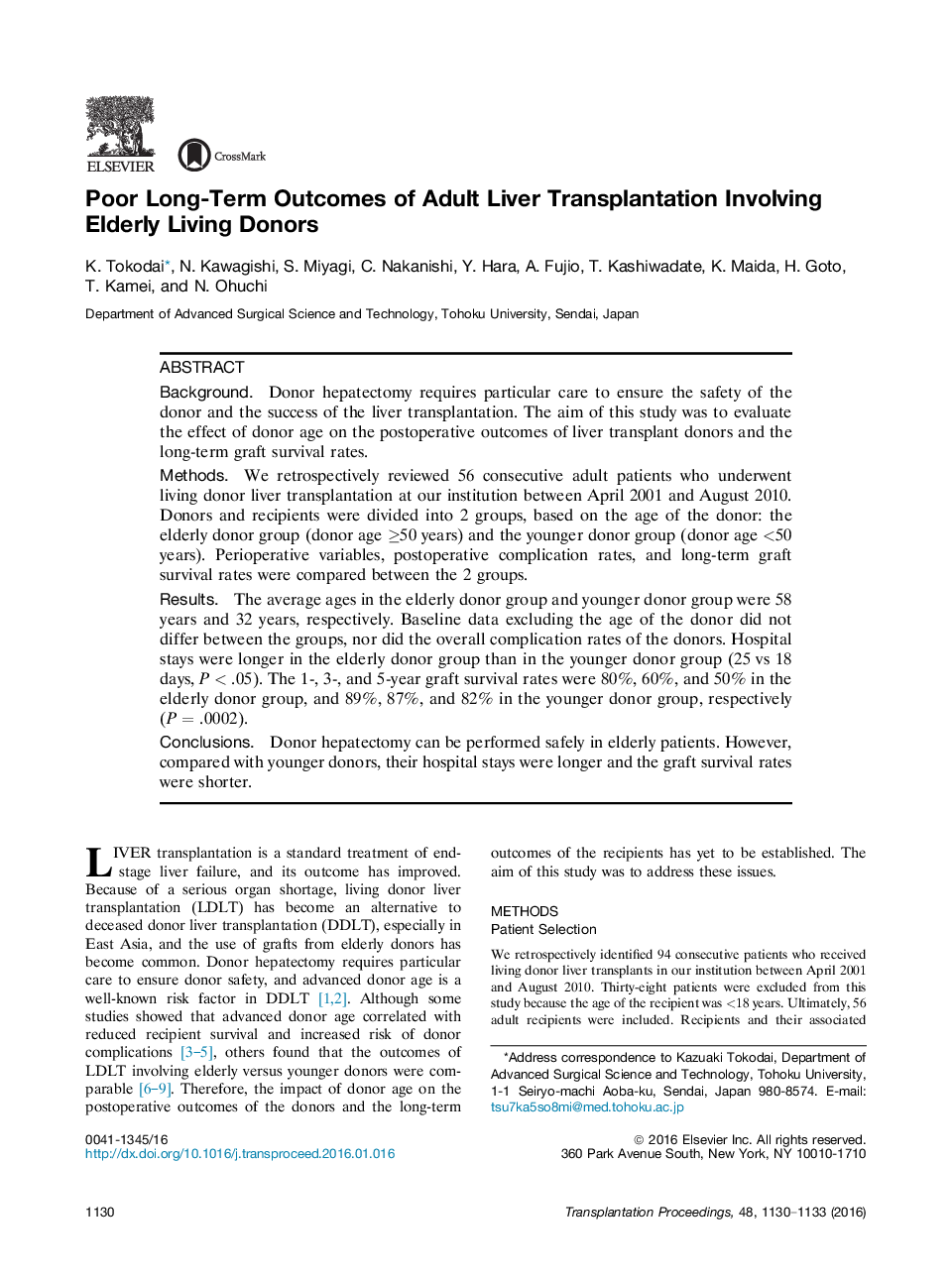| Article ID | Journal | Published Year | Pages | File Type |
|---|---|---|---|---|
| 4255975 | Transplantation Proceedings | 2016 | 4 Pages |
•Donor hepatectomy can be performed safely in elderly patients.•Older donors had longer hospital stays than did younger donors.•Grafts from older donors had shorter survival times than those from younger donors.
BackgroundDonor hepatectomy requires particular care to ensure the safety of the donor and the success of the liver transplantation. The aim of this study was to evaluate the effect of donor age on the postoperative outcomes of liver transplant donors and the long-term graft survival rates.MethodsWe retrospectively reviewed 56 consecutive adult patients who underwent living donor liver transplantation at our institution between April 2001 and August 2010. Donors and recipients were divided into 2 groups, based on the age of the donor: the elderly donor group (donor age ≥50 years) and the younger donor group (donor age <50 years). Perioperative variables, postoperative complication rates, and long-term graft survival rates were compared between the 2 groups.ResultsThe average ages in the elderly donor group and younger donor group were 58 years and 32 years, respectively. Baseline data excluding the age of the donor did not differ between the groups, nor did the overall complication rates of the donors. Hospital stays were longer in the elderly donor group than in the younger donor group (25 vs 18 days, P < .05). The 1-, 3-, and 5-year graft survival rates were 80%, 60%, and 50% in the elderly donor group, and 89%, 87%, and 82% in the younger donor group, respectively (P = .0002).ConclusionsDonor hepatectomy can be performed safely in elderly patients. However, compared with younger donors, their hospital stays were longer and the graft survival rates were shorter.
